New Delhi: The national auditor has flagged financial lapses exceeding Rs 573 crore in the operations of Indian Railways, citing persistent weaknesses in revenue recovery, asset management and infrastructure project execution across multiple zones.
The Comptroller and Auditor General (CAG) of India released the conclusions in Audit Report No. 5 of 2025.
These audit findings coincide with a period of major change for Indian Railways nationwide, including extensive electrification, station renovations, the deployment of contemporary trains and digitalisation projects.
Shortfalls in Revenue Recovery
One of the most glaring lapses identified by the audit is Northern Railway’s failure to recover Rs 148.61 crore in land licence fees from five government-aided schools.
Additionally, nine railway zones, as per the report, were found to have failed to collect Rs 55.51 crore in mandatory contributions to the District Mineral Foundations (DMFs) from contractors engaged in mining-related activities, despite having collected royalty charges.
It was also claimed that East Central Railway neglected to levy shunting costs at Bina siding between April 2020 and March 2023, resulting in a revenue loss of Rs 50.77 crore.
South Central and Northeast Frontier Railways incurred a combined loss of Rs 25.48 crore due to the non-realisation of charges for deposit works.
Delays in renewing licences for VHF (Very High Frequency) radio communication sets used for critical communication among railway staff have led to South Central Railway paying late fees of Rs 23.16 crore.
In Southwestern Railway, an express train connecting Satya Sai Prasanthi Nilayam and Bengaluru ran for six years despite consistently low occupancy, resulting in an operational loss of Rs 17.47 crore.
Infrastructure, Asset Mismanagement
The CAG audit also identified that Southwestern Railway built a Road Over Bridge that has been unused for over five years, costing Rs 11.81 crore due to coordination issues with the Karnataka government.
In Eastern Railway, a Coach Shot Blasting Plant worth Rs 12.66 crore was procured despite internal concerns over its suitability. The associated painting work was eventually outsourced, leaving the expensive equipment largely idle.
Additionally, the same zone lost the opportunity to claim Rs 6.45 crore in GST input tax credit due to errors in the classification of works contract bills.
According to the report, another instance of mismanagement involved the underutilisation of 28 Nilgiri Mountain Railway coaches manufactured by Southern Railway and the Integral Coach Factory without approval from the Research, Design and Standards Organisation (RDSO).
These unused assets represented a sunk cost of Rs 27.91 crore.
The audit also revealed incidents of procurement violations, such as inflated contracts at Northeast Frontier Railway, which resulted in contractors receiving unwarranted advantages totalling Rs 9.4 crore.
Freight Operations, Route Upgrades
Western Railway failed to modernise a major route to accommodate higher axle loads, resulting in a revenue loss of Rs 12.62 crore.
The Southern Railway suffered a similar failure on the Karur-Nagercoil section, losing Rs 5.43 crore. Southeastern Railway permitted unfit wagons to run empty, losing Rs 10.25 crore in potential freight revenue.
West Central Railway failed to furnish rakes under premium indents, resulting in a loss of Rs 6.16 crore.
Additionally, an ineligible freight concession of Rs 11.02 crore was granted by Southern Railway under the Station-to-Station Rate scheme.
The Transformation Journey
Despite the lapses flagged by the CAG, the Ministry of Railways has reported significant achievements in the year 2024, showcasing progress in capacity building, digitalisation, safety and sustainability.
According to the Ministry, there have been many initiatives and projects which are currently at the forefront of the transformation journey of the Indian Railways. These include:
Track and Speed Upgrades: Indian Railways completed 6,450 km of track renewal, upgraded speeds to 130 kmph over 2,000 km and renewed 8,550 turnouts.
Electrification: A total of 3,210 route kilometres were electrified, taking the electrified broad-gauge network coverage to 97 per cent.
Train Modernisation: A record 136 Vande Bharat trains and the first Namo Bharat Rapid Rail between Ahmedabad and Bhuj were introduced.
Freight Performance: The Railways recorded 1,473.05 million tonnes of freight loading, representing a 3.86 per cent increase over the previous year.
Station Redevelopment: The Amrit Bharat Station Scheme has started redeveloping 1,198 of the 1,337 selected stations.
Tech for Safety: Over 10,000 locomotives are equipped with the Kavach Automatic Train Protection system and 9,000 technicians have received training.
Gati Shakti Projects: 91 multi-modal cargo terminals and 58 economic corridor projects were sanctioned in 2024, totalling Rs 88,875 crore.
Bullet Train Project: The Mumbai-Ahmedabad High-Speed Rail corridor has completed over 243 km of viaduct and 352 km of pier work, with construction moving quickly in Gujarat and Maharashtra.
Here it should be noted that Indian Railways has continued to leverage digital tools, with e-ticketing now accounting for 86 per cent of reserved sector bookings and growing penetration in unreserved sectors. QR code payments and a streamlined refund system have added to passenger convenience.
In terms of sustainability, Indian Railways aims to become a net-zero carbon emitter by 2030.
As of November 2024, 487 MW of solar and 103 MW of wind power capacity had been commissioned, alongside 100 MW of round-the-clock renewable energy supply, as per the ministry.
However, the dual narrative emerging from the CAG audit and Indian Railways’ performance data is stark. On one hand, the Railways is moving towards modernisation, green energy, digitalisation and high-speed connectivity. On the other hand, the persistence of inefficiencies, revenue leakages and unutilised infrastructure undermines the value of these ambitious projects.
The challenge for the Ministry of Railways now lies in aligning operational discipline with its grand vision for a world-class, efficient and sustainable railway network under the Viksit Bharat 2047 initiative.
Since the capital allocation of Rs. 2.65 lakh crores has been allotted for the Ministry of Railways in the Budget 2025-26, the government will be ensuring that every rupee is well spent, which will be critical to fulfilling India’s transport and economic aspirations.








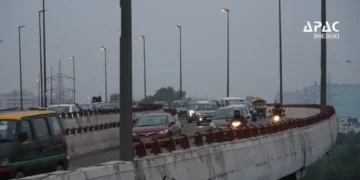













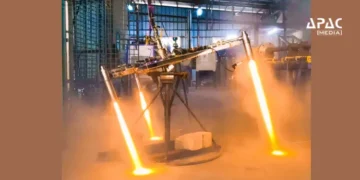




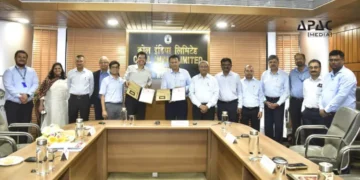
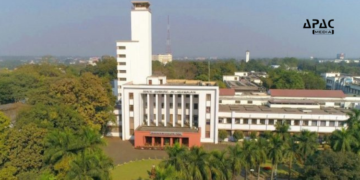


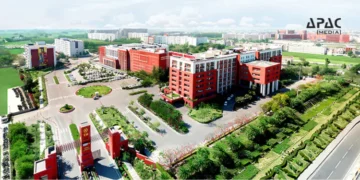
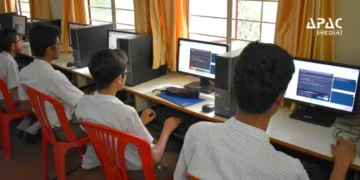

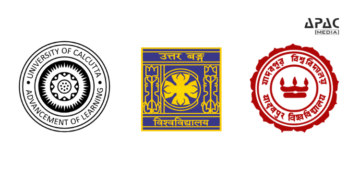





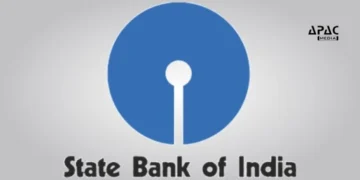


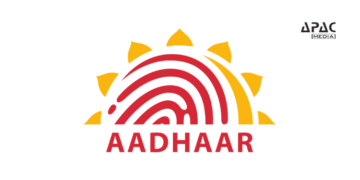

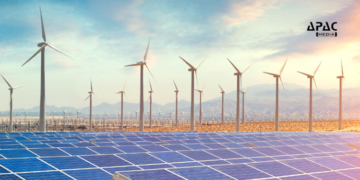

















Discussion about this post